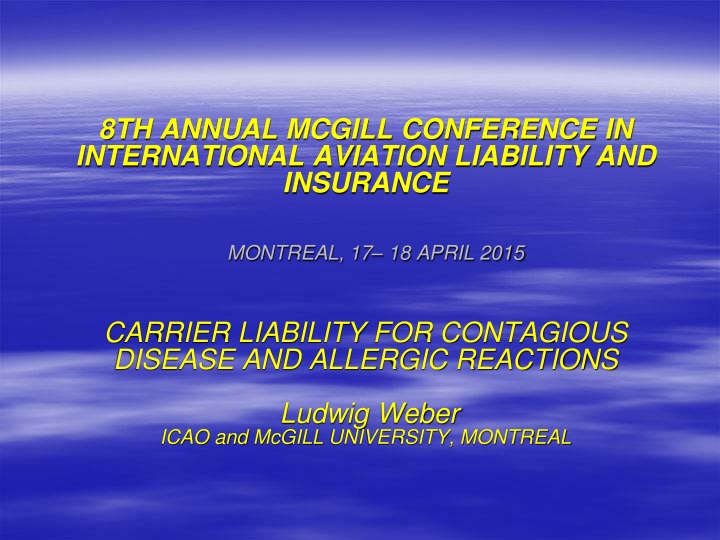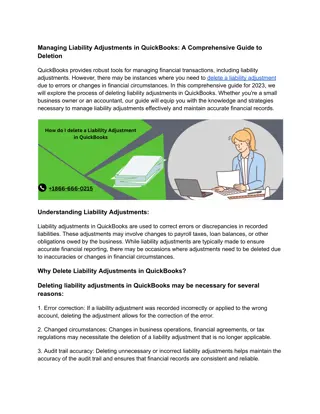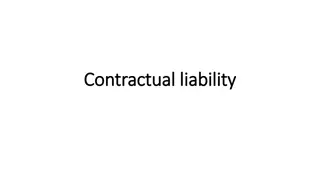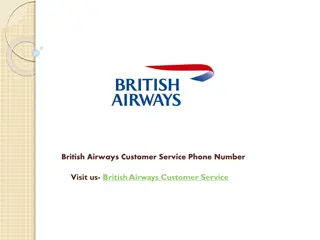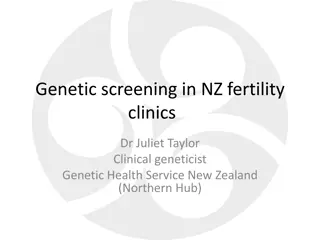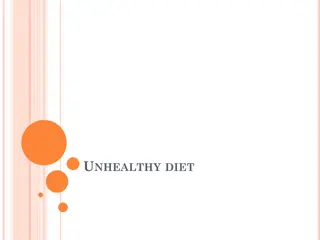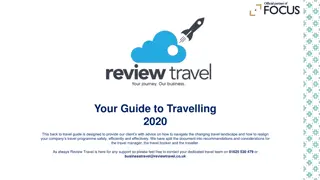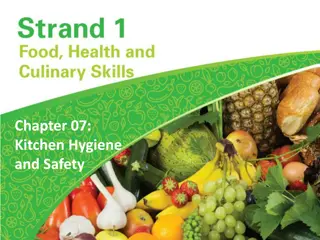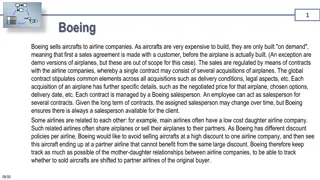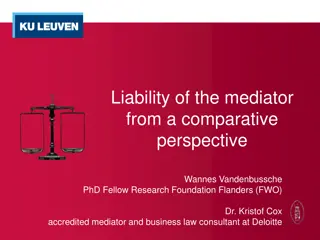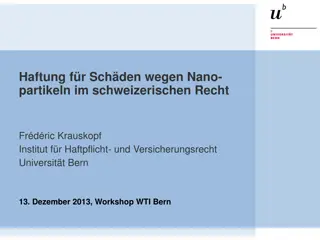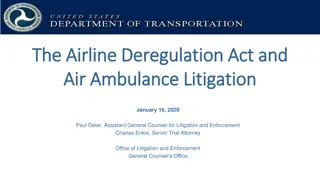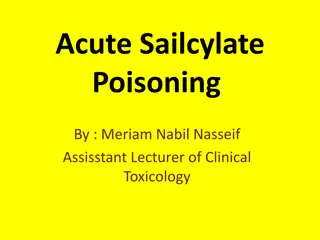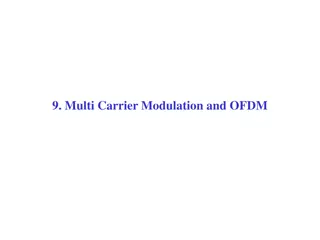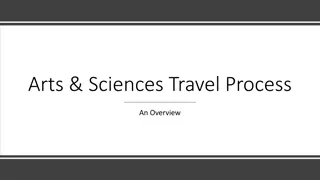Carrier Liability for Food Poisoning in Airline Travel
Carrier liability for food poisoning during airline travel is a critical aspect of aviation law, determining responsibility for incidents related to contaminated food served on flights. Understanding the legal frameworks, such as Article 17 of the Warsaw/Montreal Conventions, and differences in liability laws between the U.S. and EU, is essential in addressing cases of food poisoning affecting passengers. Explore the notion of defective products, settlement trends, and pending legal cases to grasp the complexities of airline food poisoning claims.
Download Presentation

Please find below an Image/Link to download the presentation.
The content on the website is provided AS IS for your information and personal use only. It may not be sold, licensed, or shared on other websites without obtaining consent from the author.If you encounter any issues during the download, it is possible that the publisher has removed the file from their server.
You are allowed to download the files provided on this website for personal or commercial use, subject to the condition that they are used lawfully. All files are the property of their respective owners.
The content on the website is provided AS IS for your information and personal use only. It may not be sold, licensed, or shared on other websites without obtaining consent from the author.
E N D
Presentation Transcript
8TH ANNUAL MCGILL CONFERENCE IN INTERNATIONAL AVIATION LIABILITY AND INSURANCE MONTREAL, 17 18 APRIL 2015 CARRIER LIABILITY FOR CONTAGIOUS DISEASE AND ALLERGIC REACTIONS Ludwig Weber ICAO and McGILL UNIVERSITY, MONTREAL
Carrier Liability for food poisoning Introduction Food poisoning on board during carriage by air Food served on flight covered by contract of carriage Food poisoning accident in the sense of Article 17 Warsaw / Montreal Conventions ? Accident = unexpected or unusual event that is external to the passenger (AF v. Saks, US Supr Ct., 1985)
Carrier Liability for food poisoning External to the passenger food poisoning is caused by bacteria in food, ingested by passenger (eg. Salmonella, listeria etc.) Characteristic: Food poisoning usually affects a significant number of passengers on same flight For international carriage: Food poisoning if proven, will constitute Accident under Art. 17 WC/MC For domestic carriage: Food poisoning will also trigger liability for defective product
Carrier Liability for food poisoning Notion of defective product under U.S. Law: where product is unreasonably dangerous to the consumer (2ndRestatement of Tort Law) Notion of defective product under EU law: where product does not present the safety that a person is entitled to expect (Art. 6 EU Product Liability Directive of 1985) Domestic carriage: Food poisoning will be subject to product liability (US and EU) strict liability - Liable parties: Air Carrier as distributor and Catering Supplier as producer joint and several liability
Carrier Liability for food poisoning Most cases of airline food poisoning were settled out of court (e.g. BA salmonella poisoning cases in 1990s) Presently, a US case is pending: Cortes v. American Airlines and Sky Chefs (claim filed in 2011, US District Ct. Miami), alleging that plaintiffs husband respectively father died from food poisoning on board. Both AA and the caterer Sky Chefs were sued The case if decision is rendered, will be one of the first court decisions in airline food poisoning cases.
Carrier Liability for Spread of Communicable Diseases Art. 14 Chicago Convention: Public Health Authorities called upon to act Each State agrees to take effective measures to prevent the spread of communicable diseases, and will keep in close consultation with the agencies concerned with international regulation . Public authorities act through CAPSCA, a joint body of ICAO and WHO ( Collaborative Arrangement for the Prevention and Management of Public Health Events in Civil Aviation ) 106 States Parties Meets annually and issues Guidelines and Conclusions to States, e.g. on exit health controls, travel restrictions to and from affected areas and related issues.
Carrier Liability for Spread of Communicable Diseases CAPSCA was set up during the SARS crisis in 2003 It has issued guidelines during the bird flue pandemia crisis in 2006 During the recent Ebola crisis in 2014-2015, it has issued guidelines on: - restrictions on flights, suspension of flights, traveller and ground staff screening at airports, exit screening vs. entry screening
Carrier Liability for Spread of Communicable Diseases CAPSCA guidelines are addressed primarily to States, but also concern air carriers e.g. regarding restrictions on flights To the extent air carriers keep within public health framework issued by WHO, ICAO, CAPSCA and national regulator, following rules and guidelines with due care, they will enjoy protection against liability see e.g. Blansett v. Continental, US Distr.Ct .5thCir. 2004
Carrier Liability for Spread of Communicable Diseases Similar reasoning in Caman v. Continental, US Distr.Ct. 9thCir., 2006 Whether protection is fully effective, remains to be tested Also whether air carriers which do not comply with public health framework, e.g in a crisis situation,may be exposed to potential liability, e.g. negligence, remains to be tested.
Carrier Liability for Spread of Communicable Diseases Thank You
